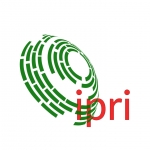Conflict Alerts # 170, 1 October 2020
 Jason Wahlang
Jason Wahlang In the news
Since 27 September, tensions have escalated between Armenia and Azerbaijan over the contentious Nagorno Karabakh (Artsakh for Armenians). Both have blamed each other for the conflict, especially the Armenians blaming the Azeris for shelling the capital of Nagorno Karabakh Stepanakert. Azerbaijan has stated that it was a counter-offensive to Armenian aggression. Currently, both countries have imposed martial law.
The United Nations have condemned the actions of both countries and asked for de-escalation of the tensions.
Issues at large
First, the territorial contention, with both countries initiating claim over Nagorno Karabakh. While Armenia feels that the region belongs to it, due to a large Armenian population, Azerbaijan takes a more historical route stating that the region was given to them during the Soviet period. Armenia has been supporting the ethnic Armenians in Nagorno Karabakh, while Azerbaijan has been emphasizing that the region is internationally recognized as part of its territory.
Second, the long history of the Nagorno Karabakh conflict, that remains unresolved since the Soviet era. The Armenians in Nagorno Karabakh view that after 1994 ceasefire and conflict, the region came under the indirect control of Armenia. The region is highly dependent on Armenia and in many ways administered as part of the country. The population mainly belonging to ethnic Armenians feel that if Azerbaijan controlled the region, it would have devastating impacts on their ethnic identities and most would prefer to reunify with Armenia to feel protected. This conflict from the Soviet period to the 1990s with recent escalations in 2016 have deterred peace in the Caucasus.
Third, external involvement is escalating the conflict. The Armenians have accused Turkey of supplying military equipment to Azerbaijan in the recent conflict. Armenians have faulted Turkey for the genocide during 1915-16. The Armenians today feel the Turks want to complete the genocide by using Azerbaijan in the regional conflict. Azerbaijan shares historical and cultural links with Turkey has sought its support over the conflict as Turkish President Recep Tayyip Erdogan have also called on Armenia to end the occupation over the region for peace.
Russia remains another major actor in the region and has appealed for peace between the two countries. Russia shares a strong relationship with both countries, such as a defence alliance with Armenia and close political relations with Azerbaijan. Russia also has military bases in Armenia. If the conflict further escalates, Russia would be openly involved in the conflict which at present it wants to avoid.
In perspective
As the conflict escalates, both countries need to find a way to stop this from spiralling. The international community must also assist in the de-escalation process. The status quo needs to be maintained, similar to what occurred in the 1990s.